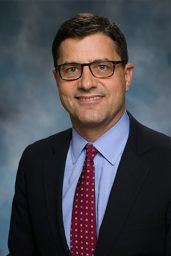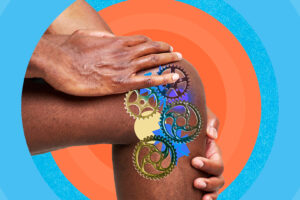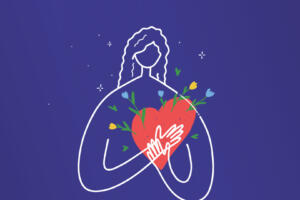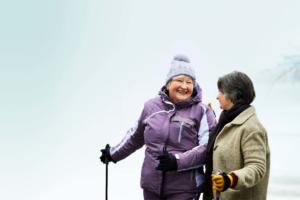By Joshua Raymond, MD, MPH, FAAFP
As we age, our healthcare maintenance needs increase. With these added responsibilities such as heart health, blood pressure and cancer prevention, seniors can often overlook a simple but important element to everyday good health ─ proper hydration. Dehydration is a frequent cause of illness and even death in elderly people for several reasons: some common medications (diuretics, antihistamines, blood pressure drugs and some psychiatric drugs) may cause water loss; the sense of thirst becomes weaker with age, and some seniors have a difficult time mobilizing to get a drink.
Some people claim they just don’t like to drink water. That’s fine ─ there are many other options that accomplish the same task ─ such as flavored waters, milk, decaffeinated teas and electrolyte-rich beverages (that don’t contain unnecessary sugars). Keep in mind, you can also get hydration from foods including fruits, vegetables, flavored gelatins, and water-based soups.
Warning signs of dehydration
Seniors, caregivers and health care professionals should be on the look-out for signs of dehydration in the elderly. Symptoms can include sudden mental confusion, dry mouth, sunken eyes, inability to sweat, rapid heart rate, low blood pressure or dark yellow urine. A good way to check for dehydration is to pull up the skin on the back of the hand for a few seconds; if it does not return to normal within a few seconds, a person may be dehydrated.
Over-hydrating can also be dangerous
Anything and everything in excess is usually harmful and the same can be said for water. With age, kidneys become weaker and may not be able to eliminate excess water effectively. Also, with limited physical activity, older people sweat less, and water loss may decrease. Accumulation of too much water in the body can cause swelling and even pulmonary congestion (excess fluid in the lungs or congestive heart failure). It can also decrease sodium levels which may lead to mental confusion and a potential misdiagnosis of a neurological disorder.
Talk with your doctor about your own specific hydration needs. A personalized daily guideline will be set based upon your size, health, fitness, medication use and medical history. Share this information with family and caregivers, if applicable. Most importantly, keep track of your hydration every day; you’ll be surprised how much healthier you look and feel.
CentraState Medical Center’s Family Medicine Center offers primary healthcare to people of all ages. In addition to family and geriatric physician specialists, the staff includes nurses, certified medical assistants, clinicians, dietician, social worker and psychologist. Senior care services available available at CentraState Healthcare System includes Applewood Estates, an active continuing care retirement community (CCRC); Monmouth Crossing, an award-winning assisted living residential community; and The Manor Health and Rehab Center, a short-term rehab and long-term skilled nursing facility for seniors and adults over age 18. To learn more, call 866-CENTRA (236-8727) or visit centrastate.com.
 Joshua Raymond, MD, MPH, FAAFP is a board-certified physician specializing in family medicine and geriatrics at CentraState Medical Center in Freehold. He is the Geriatric Fellowship Director and serves as a faculty member in the Residency Program. He can be reached at Family Healthcare at Bartley Corner by calling 732-363-6140.
Joshua Raymond, MD, MPH, FAAFP is a board-certified physician specializing in family medicine and geriatrics at CentraState Medical Center in Freehold. He is the Geriatric Fellowship Director and serves as a faculty member in the Residency Program. He can be reached at Family Healthcare at Bartley Corner by calling 732-363-6140.





